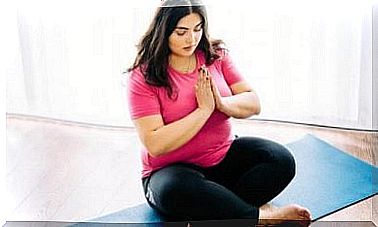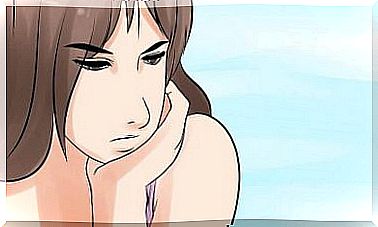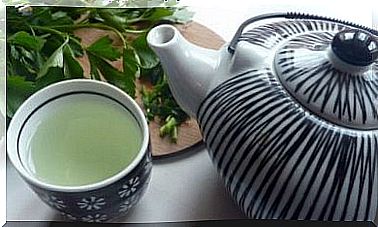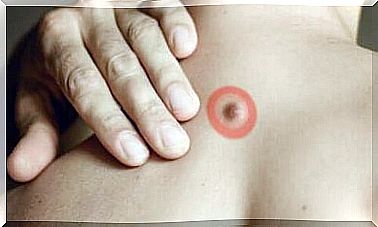The Link Between Pregnancy And Hemorrhoids
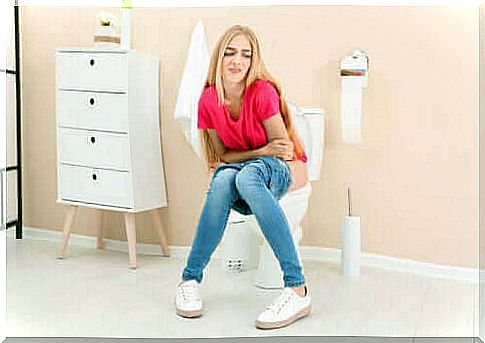
Hemorrhoids are an unpleasant and distressing problem that many women suffer from during pregnancy. They are due to dilation of blood vessels in the rectal area. So there has been a link between pregnancy and hemorrhoids, and we will address this topic in today’s article!
Most women only get hemorrhoids during pregnancy, but others also suffer from them at other times. In any case, they are much more common during pregnancy. It is estimated that up to 50 percent of pregnant women have hemorrhoids.
Hemorrhoids usually appear from the second trimester of pregnancy. They also appear during and after childbirth and often cause an extreme feeling of discomfort, even if they are not dangerous. Fortunately, hemorrhoids can be prevented and treated.
What are hemorrhoids and why is there a link between pregnancy and hemorrhoids?
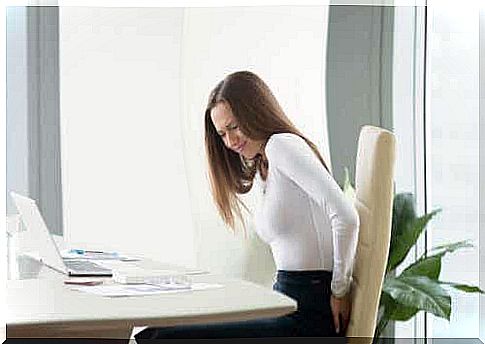
Hemorrhoids are swollen blood vessels located in the rectal area and appear as swollen globules in the anus or rectum. Such balloons contain many veins and arteries.
Swollen “beads” vary in size and usually cause pain as well as itching that intensifies during bowel function. Hemorrhoids sometimes bleed a little and may cause anxiety in pregnant women.
Hemorrhoids cause pain and discomfort when sitting or walking. Finding a comfortable sleeping position can also be difficult. There are two types of hemorrhoids, and we will discuss them next.
Different types of hemorrhoids
Hemorrhoids can be internal or external. The first are located inside the anus, the area where the rectum begins. They can come out of the anus if they are big enough. Hemorrhoids like this are called prolapse.
Internal hemorrhoids are usually less painful than external hemorrhoids, but usually bleed more. External hemorrhoids occur outside the anus and are usually more painful as well as uncomfortable.
External hemorrhoids are clumps around the anus and cause great discomfort, especially when sitting. External hemorrhoids can also bleed or become even more painful when stressed.
What causes hemorrhoids during pregnancy?
Several factors contribute to the occurrence of hemorrhoids during pregnancy. First, with the growth of the fetus, the uterus dilates, which in turn increases the pressure on the blood vessels in the anus and rectum.
In addition, an increase in progesterone during pregnancy may also affect the formation of hemorrhoids. This hormone softens the walls of blood vessels and therefore they are more prone to swelling.
Estimates also show that as many as 38% of pregnant women experience constipation. This is due to a growing uterus that presses on the intestines and, in some cases, consumption of iron supplements. At the same time, pregnancy hormones slow down intestinal function.
Overall, the stool becomes harder and presses more on the rectal veins. This leads to inflammation. Usually, women who have had this problem before pregnancy also develop it during pregnancy.
Available treatments
Hemorrhoids sometimes heal on their own after pregnancy and childbirth without special treatment. However, it is not good to leave hemorrhoids untreated as they can worsen and either significantly affect quality of life or cause major complications.
It is common to resort to home treatments first, as they are in most cases effective in treating hemorrhoids. If the hemorrhoids do not begin to heal with home care, it is best to see a doctor. So what is the best way to treat hemorrhoids during pregnancy? Let’s see.
At home
Some of the home care measures that can help reduce swelling and relieve symptoms include:
- Do not sit or stand for long periods of time and walk a little every hour.
- Daily 30 minutes of exercise can activate blood circulation.
- Use a pillow while you sit.
- Bathing in warm water several times a day helps relieve pain.
- Cold compresses or ice packs applied to the area help reduce swelling and pain.
- Wet intimate towels are better for wiping than toilet paper, and the best option is a hand shower.
- The best sleeping position is on the left side of the ground.
- Kegel exercises not only help prepare for childbirth but also alleviate the discomfort caused by hemorrhoids.
At the doctor’s office
Always consult your doctor if you experience bleeding during pregnancy. It is a good idea to contact a healthcare professional even if you are sure the bleeding is due to hemorrhoids. This professional can help treat hemorrhoids.
Usually they prescribe a laxative or suppositories to treat constipation. They may also prescribe painkillers or creams that are safe during pregnancy to relieve some discomfort.
Your doctor may also prescribe one of the following treatments:
- Hemorrhoid “hanging”. An elastic band is placed around the root of the hemorrhoids. This stops blood circulation and the nodule drops in about 10-12 days. There will be a scar that prevents the problem from recurring in the same place.
- Sclerotherapy consists of injecting a chemical into hemorrhoid clusters. Injections help shrink and heal hemorrhoids. However, they may reappear after some time.
- Hemorrhoidectomy is a surgical procedure to remove hemorrhoids. It is only recommended in severe cases or situations where complications occur.
- There is also a surgical procedure in which staples are attached to hemorrhoids that have fallen out of the anus to reposition them.
How to prevent the appearance of hemorrhoids during pregnancy
It is best to try to prevent the development of hemorrhoids. Taking care of bowel function plays an important role in this. Therefore, it is important to drink plenty of water and maintain a high-fiber diet. You can also use fiber-containing supplements.
Try to eat at regular intervals, avoid foods that cause flatulence, chew food slowly and thoroughly, and exercise often. Other appropriate measures include:
- Do Kegel exercises as often as you can.
- Go to the bathroom as soon as you have an emergency, don’t delay.
- Do not sit on the bar for too long.
- Also try not to force bowel movement to avoid strain.
- Skip the iron supplement.
- Lie on your side while you sleep, read or watch TV.
- Maintain a healthy weight.
Recent recommendations
It is important to contact your doctor if your hemorrhoids turn bluish or your symptoms worsen, making daily activities more difficult. Also contact your doctor if there is a lot of bleeding.
In any case, ask your doctor about home treatments before starting them. Treatment must be started early because hemorrhoids can cause many complications if allowed to spread and grow. In addition, because there is a clear link between pregnancy and hemorrhoids, women must maintain hemorrhoid prevention measures even after delivery.



